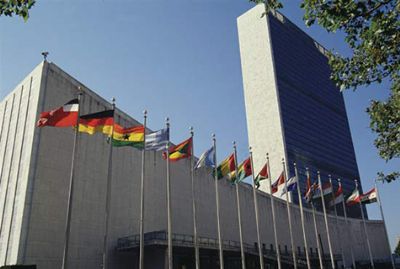"Even before Donald Trump's inauguration as president, Congress is planning to escalate the clash over the U.N. Security Council's anti-Israel resolution into a full-on conflict between the United States and the United Nations. If Trump embraces the strategy - and all signals indicate he will - the battle could become the Trump administration's first confrontation with a major international organization, with consequential but largely unpredictable results.
Immediately after the Obama administration abstained Friday from a vote to condemn Israeli settlements as illegal, which passed the Security Council by a vote of 14 to zero, Republicans and Democrats alike criticized both the United Nations and the U.S. government for allowing what Rep. Eliot Engel (D-N.Y.) called 'a one-sided, biased resolution.' Sen. Lindsey Graham (R-S.C.), the chairman of the Senate appropriations subcommittee for the State Department and foreign operations, pledged to lead an effort to withhold the U.S. funding that makes up 22 percent of the U.N.'s annual operating budget.
'The U.N. has made it impossible for us to continue with business as usual,' Graham told me right after the vote. 'Almost every Republican will feel like this is a betrayal of Israel and the only response that we have is the power of purse.'...
There are several options under consideration, two senior Senate aides working on the issue told me. Some are considered 'micro' options, such as passing a resolution that would bar any funding that might go to implementing the anti-settlement resolution. Other options include withdrawing the United States from U.N. organizations such as UNESCO or passing legislation to protect settlers who are American citizens and might be vulnerable to consequences of the resolution.
Withholding U.S. contributions to the United Nations could be done in different ways. There are discretionary funds Congress can easily cut off, but the bulk of U.S. support is obligatory, mandated by treaties that Congress has ratified, making them de facto U.S. law. Depending on how drastic the funding cuts are to be, Congress may have to pass new legislation to undo some of the obligations..."
December 28, 2016
Inside the coming war between the United States and the United Nations

United Nations headquarters in New York
Date
December 28, 2016
Title
Inside the coming war between the United States and the United Nations, Washington Post
Author(s)
Josh Rogin
